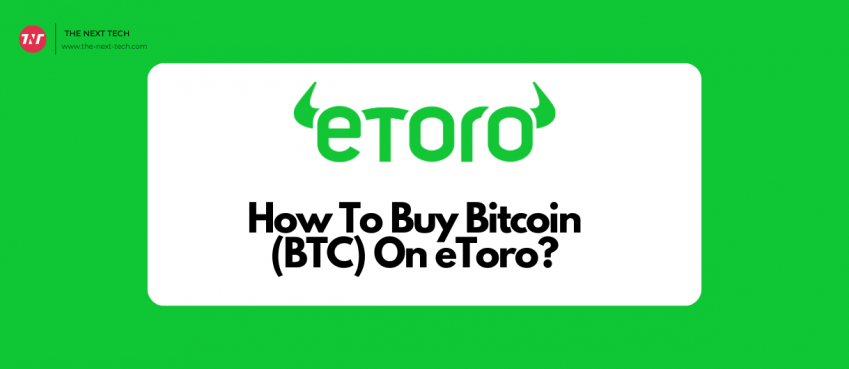
In today’s rapidly evolving financial landscape, the introduction of blockchain technology has ushered in a groundbreaking revolution in the lending industry. With the emergence of cryptocurrency loans, the traditional lending framework is undergoing a significant transformation.
This article explores how crypto loans are redefining traditional lending practices and reshaping the way we approach borrowing and lending in the digital age.
Introduction: The Evolution of Lending
Traditional lending has long been dominated by banks and financial institutions, but the emergence of blockchain technology has introduced a new chapter in lending practices. Crypto loans, a product of this technological revolution, allow individuals and businesses to borrow and lend digital assets securely and transparently.
Understanding Crypto Loans
Crypto loans enable individuals to use their cryptocurrency holdings as collateral to secure loans in various cryptocurrencies or even in traditional fiat currencies. This innovative approach eliminates the need for credit checks and extensive paperwork, making the lending process faster and more accessible.
Also read: Top 10 Helpful GitHub Storage For Web DevelopersWhat is a Crypto Loan?
A crypto loan is a financial arrangement that leverages blockchain technology, allowing individuals to use their cryptocurrency holdings as collateral to secure loans in either digital assets or traditional fiat currencies. This innovative concept eliminates the need for credit checks and extensive paperwork, streamlining the lending process and enabling borrowers to access funds more quickly. By utilizing smart contracts on blockchain platforms, crypto loans ensure transparency, security, and automation in the lending process, fundamentally redefining traditional lending practices and offering a novel way for individuals to leverage their crypto assets while maintaining ownership.
Advantages of Crypto Loans
The advantages of crypto loans are manifold. They provide borrowers with quick access to funds without selling their valuable crypto assets. Additionally, the process is borderless, allowing borrowers from different parts of the world to participate. The decentralized nature of crypto loans also reduces the dependency on traditional financial intermediaries.
What are The Risks of Crypto Loans
What are the risks of crypto loans? While crypto loans offer attractive benefits, they come with inherent risks that borrowers and lenders must navigate. One of the primary risks is the volatility of cryptocurrency prices, which can result in the collateral’s value fluctuating drastically during the loan term. Additionally, the security of lending platforms is crucial, as vulnerabilities and smart contract bugs could lead to loss of funds. Regulatory uncertainties and potential changes in cryptocurrency regulations also pose risks, affecting the legal landscape surrounding crypto loans. As with any financial endeavor, proper risk management and due diligence are essential to mitigate these potential challenges and ensure a secure lending experience.
Crypto Loans Without Collateral
Crypto loans without collateral provide a unique alternative within the lending landscape, allowing borrowers to access funds without having to pledge their cryptocurrency holdings as collateral. Unlike traditional crypto loans that rely on collateralization, these loans are typically extended based on the borrower’s creditworthiness and financial history. While offering borrowers the advantage of not risking their valuable assets, crypto loans without collateral often involve more rigorous credit checks and higher interest rates to mitigate the lender’s risk. This lending approach caters to individuals who wish to retain ownership of their cryptocurrencies while still gaining access to funds, but it also requires a strong financial profile to qualify for favorable terms.
Types of Crypto Loans
Types of crypto loans encompass a diverse range of lending options within the digital finance realm, each tailored to meet specific borrower needs and risk tolerances. One prevalent type is Collateralized Crypto Loans, where borrowers pledge their cryptocurrency holdings as collateral, allowing them to access funds without selling their assets. The loan amount is usually a percentage of the collateral’s value, and failure to repay could result in the loss of the collateral.
- Crypto-backed Stablecoin Loans utilize stablecoins, which are pegged to a stable asset like a fiat currency. Borrowers deposit crypto assets and receive stablecoins as a loan, providing a way to access liquidity while hedging against market volatility.
- Unsecured Crypto Loans do not require collateral and are based on the borrower’s creditworthiness. These loans are riskier for lenders, leading to higher interest rates and stricter eligibility criteria.
- Peer-to-Peer (P2P) Crypto Loans leverage decentralized platforms, connecting borrowers directly with lenders. This type promotes inclusivity and avoids intermediaries, but borrowers still need to meet certain criteria.
- Overcollateralized Loans involve borrowers providing more collateral than the loan amount, minimizing lender risk. This approach is common in DeFi platforms, ensuring repayment even if the collateral’s value drops.
- Crypto Margin Trading allows traders to borrow funds to magnify their trading positions. While potentially lucrative, it carries a high risk due to the amplified losses in case of unfavorable market movements.
- Flash Loans, popular in DeFi, permit borrowers to access funds instantly and repay within a single transaction block. They exploit price arbitrage opportunities but require quick repayment.
- Business Crypto Loans cater to enterprises, providing working capital or expansion funds in the form of crypto assets. These loans can be collateralized or unsecured.
- Real Estate Crypto Loans facilitate property purchases using cryptocurrency. The property acts as collateral, and loan terms are negotiated based on its value.
- Merchant Cash Advances with Cryptocurrency offer businesses quick access to funds by selling future cryptocurrency sales at a discount.
- Automated Yield-Farming Loans involve borrowing funds to participate in yield-farming protocols, aiming to generate returns from DeFi platforms.
Understanding these diverse types of crypto loans empowers borrowers and lenders to choose options aligned with their goals, risk appetite, and financial circumstances.
Also read: iPhone 14 Pro Max Is Apple’s New iPhone To Be Launched In September (Know The Release Date, Specification, Rumour & More)Crypto Lending Platform
A crypto lending platform is an innovative financial service that operates within the digital landscape, enabling individuals and businesses to borrow and lend cryptocurrencies or digital assets securely and efficiently. These platforms facilitate the borrowing process by connecting lenders and borrowers, providing a marketplace for crypto-based loans. Leveraging blockchain technology and smart contracts, crypto lending platforms automate lending processes, ensuring transparency, accuracy, and trust among participants.
Users on these platforms can lend their surplus cryptocurrencies and earn interest as borrowers utilize their assets as collateral. Borrowers, in turn, can access funds without the need for credit checks or extensive paperwork, making the lending process more accessible and streamlined.
Key Features of Crypto Lending Platforms Include:
- Collateral Management: Borrowers pledge their crypto holdings as collateral, minimizing the risk for lenders in case of default.
- Smart Contracts: Self-executing smart contracts facilitate lending agreements, automating loan origination, repayment, and interest calculations.
- Transparency: All transactions and lending terms are recorded on the blockchain, ensuring transparency and reducing the need for intermediaries.
- Global Accessibility: Crypto lending platforms operate in a decentralized manner, allowing participants from around the world to engage in lending and borrowing activities.
- Diverse Loan Options: Platforms offer various loan types, interest rates, and collateral options to cater to a wide range of borrowers’ and lenders preferences.
- Risk Assessment: Some platforms implement credit scoring mechanisms to assess borrower creditworthiness and assign appropriate interest rates.
- Decentralized Finance (DeFi) Integration: Many crypto lending platforms are part of the larger DeFi ecosystem, enabling peer-to-peer lending and decentralized financial services.
- Security Measures: Robust security measures are implemented to protect users’ assets and data from cyber threats.
- Yield Generation: Lenders earn interest on their deposited cryptocurrencies, contributing to the broader DeFi trend of earning passive income.
- Regulatory Compliance: Reputable crypto lending platforms adhere to regulatory requirements and strive to maintain a secure and compliant environment for users.
Overall, crypto lending platforms play a pivotal role in reshaping traditional lending practices, offering a more inclusive, efficient, and technologically advanced approach to borrowing and lending in the digital age.
The Role of Blockchain in Crypto Lending
Blockchain technology plays a pivotal role in crypto lending. Smart contracts, self-executing agreements with the terms directly written into code, ensure transparency and automate the lending process. This enhances trust between parties and removes the need for intermediaries.
Overcoming Challenges and Concerns
While the potential of crypto loans is immense, challenges such as price volatility, regulatory uncertainties, and security concerns have to be addressed. Borrowers and lenders must collaborate to develop risk management strategies to mitigate these challenges.
Regulatory Outlook: Navigating the Legal Landscape
The regulatory landscape surrounding crypto loans is evolving rapidly. Governments and regulatory bodies are working to establish clear guidelines for crypto lending platforms, ensuring consumer protection, anti-money laundering compliance, and financial stability.
Cryptocurrency Collateralization: A New Paradigm
Collateralization of loans with cryptocurrency holdings is a fundamental concept in the world of crypto lending. It allows lenders to mitigate risks by holding collateral that retains its value regardless of market fluctuations.
Also read: Top 10 Programming Languages for Kids to learnDecentralized Finance (DeFi) and Crypto Loans
Decentralized Finance, or DeFi, platforms are playing a significant role in the expansion of crypto loans. These platforms facilitate peer-to-peer lending and borrowing without intermediaries, further democratizing the lending process.
Borrower’s Perspective: Access and Convenience
Crypto loans offer borrowers the convenience of accessing funds without the hurdles of traditional lending processes. This is especially beneficial for individuals without a strong credit history or those in need of quick liquidity.
Best Crypto Lending Platform
Determining the “best” crypto lending platform can depend on various factors, including user preferences, features offered, security measures, interest rates, and more. However, several prominent crypto lending platforms have gained recognition within the industry for their reliability, transparency, and user-friendly interfaces. Here are some of the top crypto lending platforms:
- BlockFi: BlockFi is a widely recognized platform that offers a variety of crypto lending and borrowing services. Users can earn interest on their crypto holdings or take out loans using their assets as collateral. BlockFi is known for its competitive interest rates and secure lending practices.
- Celsius Network: Celsius Network provides users with the opportunity to earn interest on their cryptocurrencies and borrow funds using their holdings as collateral. It boasts a user-friendly app interface, a wide range of supported cryptocurrencies, and a unique loyalty program.
- Nexo: Nexo offers instant crypto-backed loans with no credit checks, allowing users to borrow funds while keeping ownership of their crypto assets. Nexo also provides a Nexo Card that enables users to spend their crypto holdings like traditional currency.
- Crypto.com: In addition to its crypto exchange, Crypto.com offers a lending platform where users can earn interest on their crypto deposits. It also features a credit service that allows users to borrow against their crypto holdings.
- YouHodler: YouHodler offers both crypto savings accounts with interest accrual and crypto-backed loans. It supports a variety of cryptocurrencies and offers competitive interest rates.
- Aave: Aave is a decentralized lending platform within the DeFi ecosystem, allowing users to lend and borrow cryptocurrencies without intermediaries. Aave’s lending protocols are governed by smart contracts and community voting.
- Compound: Another DeFi lending platform, Compound, enables users to lend and borrow a range of cryptocurrencies. Interest rates on the platform are algorithmically determined based on supply and demand.
- Bitfinex Borrow: Bitfinex offers lending services where users can lend their crypto assets and earn interest. It also provides borrowers with the ability to access funds using their holdings as collateral.
- SALT: SALT enables borrowers to secure loans using their crypto holdings as collateral. It focuses on providing liquidity to users while allowing them to maintain ownership of their assets.
When choosing a crypto lending platform, it’s important to consider factors such as security, interest rates, supported cryptocurrencies, reputation, and the overall user experience. Users should also conduct thorough research and due diligence before depositing funds or engaging in lending activities on any platform.
Lender’s Perspective: Managing Risk and Returns
Lenders in the crypto lending ecosystem can earn attractive yields by providing funds to borrowers. However, they must carefully assess the risks associated with price fluctuations and market uncertainties.
The Future of Lending: Integration and Adoption
As blockchain technology becomes more mainstream, the integration of crypto loans into traditional financial services is likely to accelerate. This will lead to a hybrid lending model that combines the benefits of both worlds.
Case Studies: Real-World Applications
Several real-world applications highlight the potential of crypto loans. From enabling microloans in underserved regions to facilitating cross-border transactions, crypto loans are proving their utility across diverse scenarios.
Also read: Top 7 Work Operating Systems of 2021Security and Privacy: Blockchain’s Contributions
Blockchain’s inherent security features contribute to the robustness of crypto lending platforms. The immutability and transparency of blockchain ensure that transactions are secure and tamper-proof.
Risks and Mitigations in Crypto Lending
While crypto loans offer numerous benefits, borrowers, and lenders must remain aware of risks such as platform vulnerabilities, smart contract bugs, and market volatility. Diligent risk management and due diligence are crucial.
Conclusion: A Transformative Path Forward
Crypto loans are undeniably redefining traditional lending norms. With the power of blockchain technology, borrowers and lenders are entering a new era of financial collaboration, marked by accessibility, transparency, and efficiency.
FAQs
What cryptocurrencies are commonly accepted as collateral?
Bitcoin and Ethereum are widely accepted as collateral, but other cryptocurrencies are gaining traction too.
Can I get a crypto loan without a credit check?
Yes, crypto loans are collateral-based, so credit checks are typically not required.
How do decentralized lending platforms work?
Decentralized lending platforms operate through smart contracts, automating lending and borrowing between peers.
What's the future of crypto lending?
The future is promising as more people recognize the benefits of crypto loans, likely leading to increased adoption and innovation.
Top 10 News
-
01
10 Best AI Image Enhancer & Upscaler Tools (100% Workin...
Monday October 2, 2023
-
02
10 Best AI Text To Speech Generator (October 2023)
Wednesday September 20, 2023
-
03
10 Best AI Video Generators In 2023 (Free & Paid)
Wednesday September 20, 2023
-
04
10 Best AI Voice Generators In 2023 (Free & Paid)
Friday September 15, 2023
-
05
10 Best Free QR Code Generators in 2023
Monday July 24, 2023
-
06
Top 10 Mental Health Apps For 2023
Friday July 14, 2023
-
07
Being Online: Top 10 Benefits Of Online Banking
Friday May 12, 2023
-
08
Top 10 Essential Tools for Boosting Productivity in Flutter ...
Tuesday March 7, 2023
-
09
10 New & Trusted Z-Library Alternatives (Explore Ebooks...
Thursday February 2, 2023
-
10
10 Amazing Uses For Solar Energy At Home
Thursday January 12, 2023






